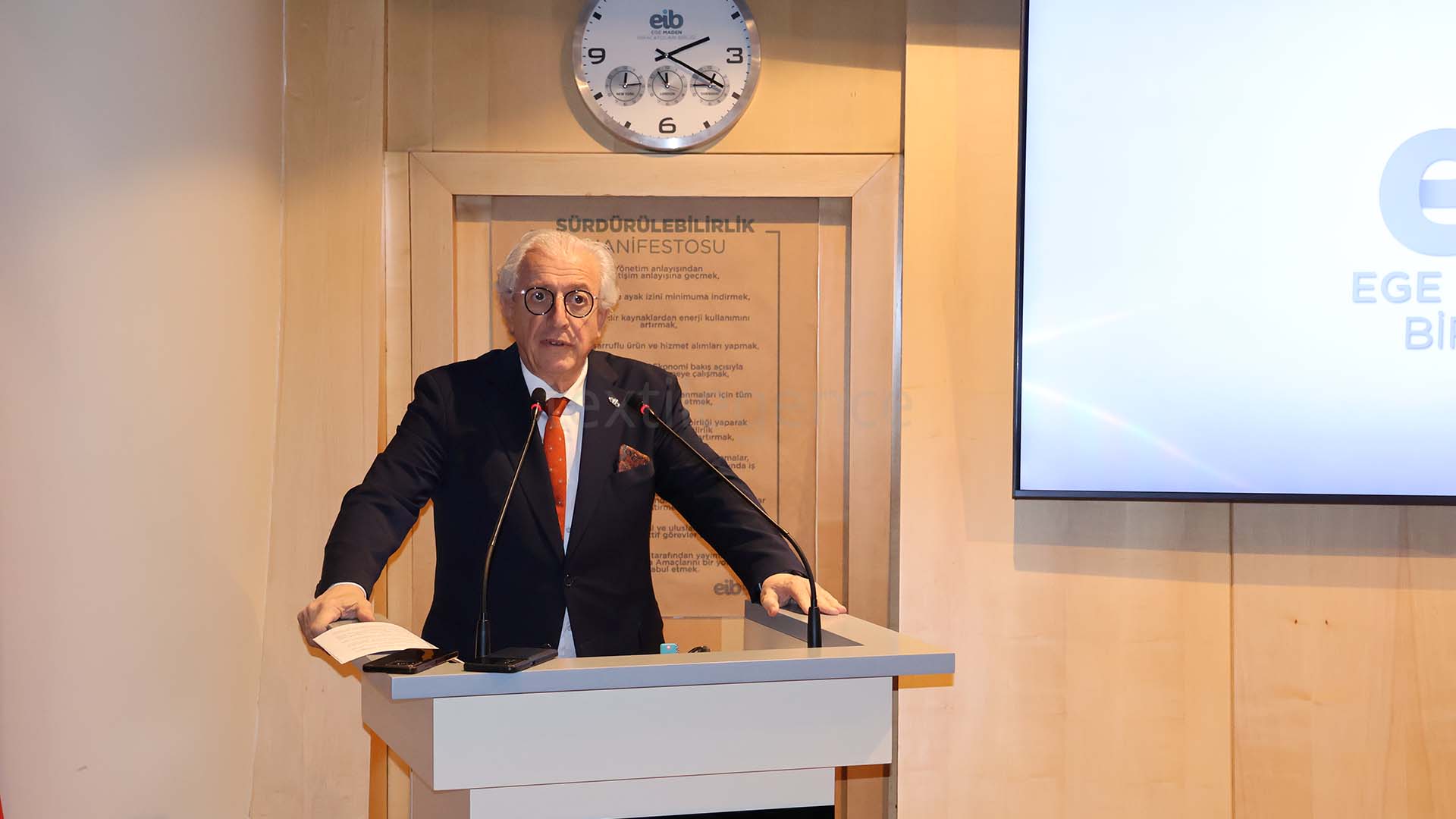The new tariffs imposed by the US have put Türkiye in a more advantageous position compared to its competitors in the textile sector, such as China and Vietnam. Speaking at the ordinary financial general assembly meeting of the Aegean Textile and Raw Materials Exporters‘ Association (ETHİB) for 2024, Jak Eskinazi, Coordinator President of the Aegean Exporters’ Associations (EİB) and President of ETHİB, said: “Recent developments show how accurate the work of our Turquality promotion project, which we, as the Textile Sector Board, initiated with the participation of all our relevant Unions, in order to increase our exports to the USA and to promote our sector.” He emphasised that they are hopeful for 2025 despite the exchange rate and financing problems.
Eskinazi made the following statements in his speech: “US President Donald Trump announced new additional tariffs to be applied to many countries, especially China and Vietnam. Türkiye is among the countries to which 10% tariffs will be applied. In the US tariffs, our country was in the group of countries with the lowest additional tariffs, we will need to realise our advantageous situation due to the higher tax rates applied to competing countries by intensifying our trade activities towards the US in the coming periods and acting with a correct road map in the new trade order that will be revealed by tariffs.”
He said that the statements of the Minister of Trade Ömer Bolat also indicate that there will be positive developments for the sector: “He stated that Türkiye will start to implement comprehensive action plans such as the ‘Far Countries Strategy’, in which the US is also involved, as well as preparations for various sectors such as textiles, apparel and machinery, and that as a result of their implementation, opportunities will arise for further liberalisation of trade between Türkiye and the US. I think we will see the positive results of these comments made specifically for our sector.”
Eskinazi said that they also evaluated how the US’s new additional tariffs affect the sector on the basis of sub-product groups; “For example; While the tariff rate was 0% in silk fibres and yarns or linen, hemp fibres and yarns, with the new application, 10% tax can be applied and sent to the US. Or, for example, an additional 10 per cent tariff will be added to the 2.5 percent to 20.9 percent tariff on bed linen,” he explained.

“The additional 10% additional tariff may be perceived negatively at the first stage, but we are more advantageous”
Jak Eskinazi said, “In the first stage, the additional 10% tariff may be perceived negatively, but we can see that we are in a more advantageous position when evaluated with the tariff rates to be applied to our competitors. For example, while the additional tariff applied to Pakistan, which has an existing tariff of 15 percent, is 29 percent, an additional 26 percent tariff will be applied to India, which has an existing tariff of 15 percent. The same is true for apparel; for example, while the current US tariff on knitted cotton T-shirts to Türkiye is 16.5 percent, or 16.6 percent for cotton men’s denim trousers, there will be an additional 10 percent tariff. However, the tariff rates of our competitors; for example, while the current tariff for China is 50 percent, it is 84 percent with the additional tariff. Bangladesh’s current tariff is 15 percent, but with the additional tariff, it totals 52 percent. While Vietnam was 15 percent, the total became 61,” he said.
Aegean textile manufacturers are hopeful for 2025 despite the difficulties
President Eskinazi said: “We conveyed many opinions to the Ministry of Treasury and Finance on the subject, but as you know, the expected solution could not be obtained due to the view that ‘if the foreign exchange increases, inflation increases’. However, despite the recent increases in exchange rates, inflation has decreased. As I have conveyed everywhere, Türkiye has become a country that is 40-50 percent more expensive than its competitors. As exporters, while we were hit by inflation and parity, we also had great difficulties in accessing financing in 2024. We anticipate that 2025 will not be easy, but we will continue our work with the hope that we will have a better year with new developments and new positions we will take.”
After the General Assembly, Prof. Dr Yaşar UYSAL made a presentation on ‘Developments and Expectations in Global and Turkish Economy’.

